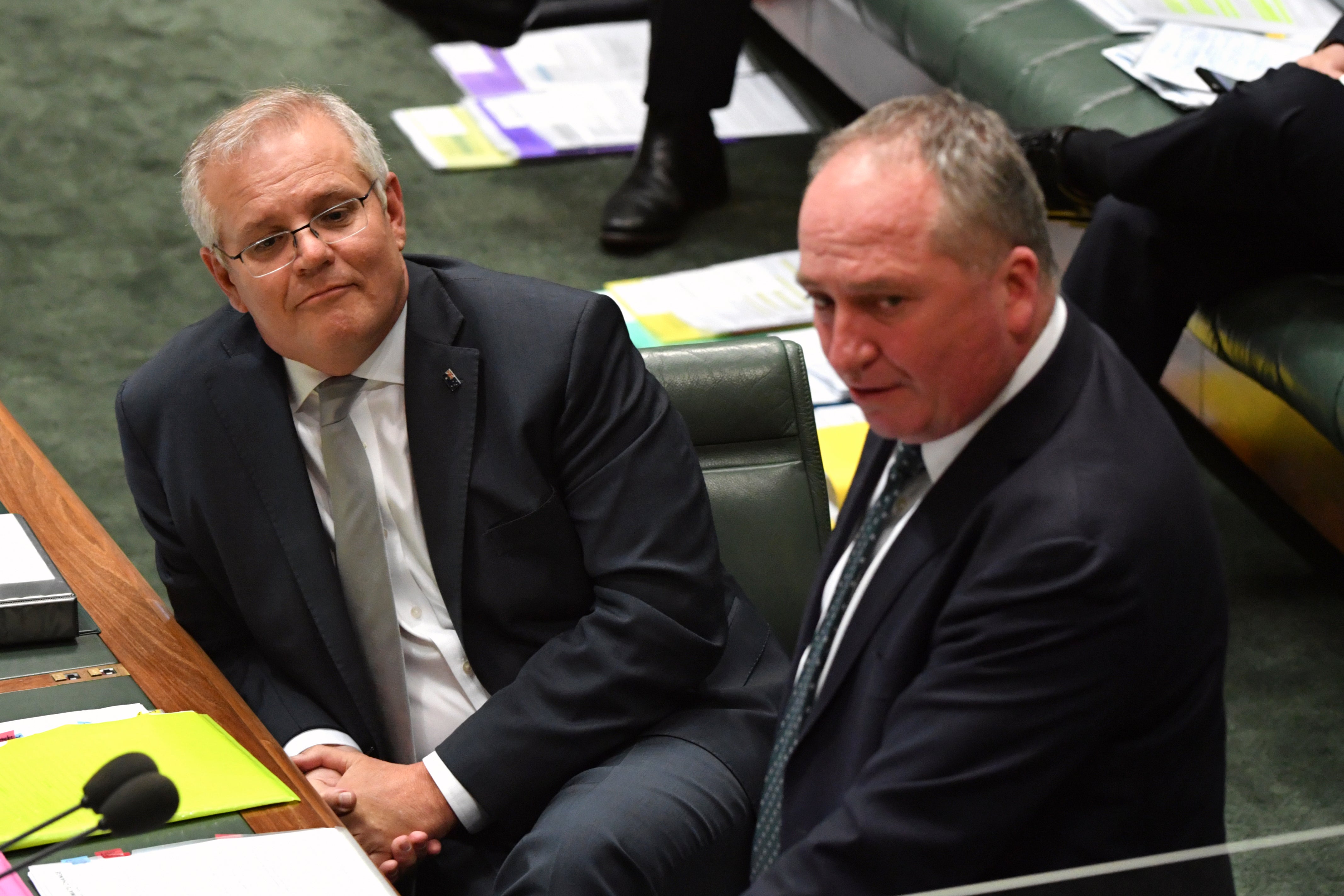Australian prime minister will take net zero target to COP26
Australia's prime minister says his country will commit to a target of net zero carbon emissions by 2050 but will not increase its goal for 2030 at an upcoming U.N. climate summit in Scotland

Your support helps us to tell the story
From reproductive rights to climate change to Big Tech, The Independent is on the ground when the story is developing. Whether it's investigating the financials of Elon Musk's pro-Trump PAC or producing our latest documentary, 'The A Word', which shines a light on the American women fighting for reproductive rights, we know how important it is to parse out the facts from the messaging.
At such a critical moment in US history, we need reporters on the ground. Your donation allows us to keep sending journalists to speak to both sides of the story.
The Independent is trusted by Americans across the entire political spectrum. And unlike many other quality news outlets, we choose not to lock Americans out of our reporting and analysis with paywalls. We believe quality journalism should be available to everyone, paid for by those who can afford it.
Your support makes all the difference.Australia will commit to a target of net zero carbon emissions by 2050 but will not increase its goal for 2030 at an upcoming U.N. climate summit in Scotland Prime Minister Scott Morrison said Tuesday.
Morrison’s conservative Liberal Party-led government was narrowly re-elected in 2019 with a climate policy that opposed the 2050 net zero target adopted by the opposition center-left Labor Party.
Morrison wrote in an opinion piece published Tuesday in Australian News Corp newspapers that his government will indeed commit to the 2050 net zero goal, but will not up its election pledge to reduce emissions between 26% and 28% below 2005 levels by 2030.
“I said we would meet and beat this target and we will,” Morrison wrote.
Getting to the net zero commitment took political wrangling on the part of Morrison's ruling party, including winning the support of a rural-based junior coalition member — the Nationals party — with a number of concessions.
One of them was that Resources Minister Keith Pitt, who maintains Australia will continue exporting coal for decades, was made the fifth Nationals’ Cabinet minister. Morrison on Monday announced Pitt’s promotion.
Morrison will announce further details of the agreement with the Nationals after they are explained to government lawmakers at a meeting later Tuesday at Parliament House.
The conditions also include a government review every five years of the economic impacts of the net zero target outside major cities. The first assessment would be delivered in 2023, The Australian newspaper reported.
Finance Minister Simon Birmingham described the reviews as a “health check” on how various parts of Australia were being effected by the transition to net zero.
“What it will do is focus the minds of the government of the day very clearly on where additional investments may be necessary to help ensure the transition,” Birmingham told Australian Broadcasting Corp.
British Prime Minister Boris Johnson, who will host the upcoming summit in Glasgow, Scotland, known as COP26, congratulated Australia on its net zero ambition.
“That was very difficult for Australia because Australia’s very heavily dependent on coal, on lots of carbon-producing industries, and they’ve done a heroic thing,” Johnson said, referring to the 2050 commitment.
However Australia is likely to be criticized in Glasgow for its relatively weak 2030 target. The United States has committed to reductions of between 50% and 52% below 2005 levels. Britain has pledged to cut emissions by 68% below 1990 levels.
Australia is one of the world’s largest exporters of coal and liquified natural gas. The nation is also one of the world’s worst greenhouse gas emitters per capita because of its heavy reliance on coal-fired power.
COP26 will assess progress since nations agreed in the 2015 Paris accord to limit warming to less than 2 degrees Celsius (3.6 degrees Fahrenheit). The meeting in Glasgow is widely seen as the last chance to hold global warming to 1.5 C (2.7 F) above pre-industrial levels.